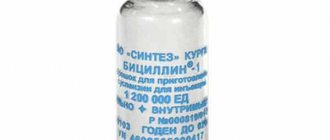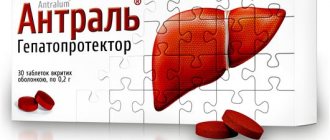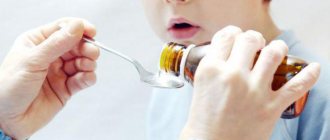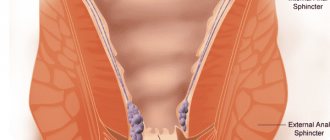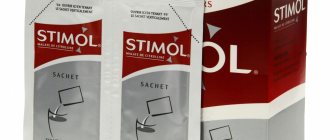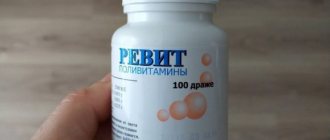In their practice, otolaryngologists and dentists often use Decathylene tablets. The drug anesthetizes, has anti-inflammatory and hemostatic effects. In addition, it destroys gram-positive bacteria.
For your information, buying Decathylene is not so easy. You will save time and nerves if you contact an online pharmacy.
| Active components | Excipients |
|
|
Description
Disruption of the normal microflora of the oropharynx reduces the function of the barrier that prevents colonization by potentially pathogenic microorganisms or already present bacteria.
This provokes the development of a chronic inflammatory process of the mucous membrane of the throat. It is advisable to use topical drugs in complex therapy for inflammatory bacterial lesions of the oropharynx in adult patients and children. Decathylene is a combination drug for local treatment of inflammatory diseases of the mouth and throat. The components of the drug exhibit a complex effect, simultaneously influencing the symptoms and cause of the disease.
- Dequalinium chloride prevents the proliferation of pathogenic bacterial microflora, which causes mixed infections of the oral cavity and pharynx. The component has antifungal, anti-inflammatory and antibacterial effects. The spectrum of action includes most gram-positive and gram-negative bacteria, fungi and spirochetes.
- Dibucaine hydrochloride provides a powerful analgesic effect that does not have systemic side effects.
Decathylene does not contain sugar, so it can be indicated for patients with diabetes and used in dentistry without provoking the development of caries, provided that the tablet is left in the mouth for a long time.
Release form: lozenges with a pleasant peppermint flavor. Can be used in pediatric practice for children over 4 years old. The tablet should be dissolved slowly without chewing. The active ingredient is absorbed in small quantities, so the likelihood of general effects on the body is minimal.
Decathylene is used as an adjuvant in treatment regimens for sore throats, candidiasis of the oral cavity and pharynx, as well as for pharmacotherapy of acute infectious and inflammatory diseases of the oral cavity caused by bacteria sensitive to the drug.
It should be borne in mind that the use of Decathylene immediately after brushing your teeth or in the presence of blood and pus in the oral cavity reduces the antibacterial properties of the medicine.
Decathylene shortens the duration of the disease, eliminates pain during acute inflammatory processes in the oropharynx, relieves soreness and irritation of the throat, which allows the patient to quickly recover and return to social activity.
Contraindications
The drug has no serious contraindications. It is not recommended to be given to children under 4 years of age for safety reasons. Children do not know how to dissolve tablets and instead of letting them melt in their mouths, they swallow them. At the same time, they can choke on sweet pills, which is life-threatening.
Since the effect of taking it can only be achieved with long-term absorption, there is no point in prescribing it to newborns. It is also inappropriate to dissolve them in juice or plain water, since the drug has an exclusively local effect, affecting the mucous membranes of the larynx and oral cavity.
Decathylene is a new medicine. It is not recommended for pregnant women, since the mechanism of action on the pregnant baby has not been fully studied. Patients with impaired liver and kidney function should take the medication with caution. There are no data on its use with these pathologies.
If a patient has been diagnosed with a rare hereditary disease, fructose intolerance syndrome, the drug is contraindicated for him, since it contains sorbitol.
Pharmacological properties
Pharmacodynamics.
As a bactericidal and fungistatic agent, dequalinium chloride affects microorganisms that cause mixed infections of the mouth and throat. The spectrum of action of this topical chemotherapeutic agent is broad and includes most gram-positive and gram-negative bacteria, as well as fungi, spirochetes, and pathogens that cause mixed infections of the mouth and throat. The accumulation of dibucaine hydrochloride in the body alleviates the pain symptom that accompanies infections of the mouth and throat.
Microorganisms resistant to dequalinium chloride are unknown.
Does not cause caries formation.
Pharmacokinetics.
The main active component is absorbed in very small quantities.
Release form, composition
The Swiss product is available in the form of white round tablets for resorption. Each of them has a chamfer on both sides, a D imprint and a notch. The instructions for Decathylene indicate that the carton contains 20 or 100 tablets.
The active substance of the drug is dequalinium chloride, the content of which in each tablet is not less than 0.25 mg, as well as dibucaine hydrochloride (0.03 mg). Auxiliary components: peppermint oil, colloidal silicon dioxide, magnesium stearate, sorbitol, talc.
Indications
Local treatment of acute inflammatory diseases of the mouth and throat: gingivitis, ulcerative and aphthous stomatitis, tonsillitis, laryngitis and pharyngitis. Decathylene is also recommended for use in cases of bad breath.
Decathylene can be used in cases of mixed infection of the mouth and throat (on the recommendation of a doctor); as an auxiliary drug in the treatment of catarrhal tonsillitis, lacunar tonsillitis and Plaut-Vincent tonsillitis; in case of candidiasis of the oral cavity and pharynx.
Recommended in the postoperative period after tonsillectomy and tooth extraction.
Use during pregnancy and lactation
Does the instructions for use for pregnant women allow the use of the drug "Decatylene"? Feedback from therapists does not exclude the possibility of treating infectious diseases with this remedy.
Like most medications on the market today, there are no studies on the safety of using this medication in women during pregnancy. That is why the Decatylene instructions recommend starting treatment with this drug only after consultation with your doctor and only in cases where the effectiveness of therapy for the mother is higher than the possible risk to the fetus. If it is possible to replace Decatylene with another product that does not threaten the life and health of the unborn child, you should take advantage of it.
It is not recommended to use this drug during breastfeeding.
Directions for use and doses
Adults and children over 12 years of age
Prescribed 1 tablet every 2 hours, after reducing the symptoms of inflammation - 1 tablet every 4 hours.
Children aged 4 years and older
Prescribed 1 tablet every 3 hours, after reducing the symptoms of inflammation - 1 tablet every 4 hours.
The maximum daily dose is 10-12 tablets during the acute phase and 6 tablets after the inflammatory symptoms disappear.
The tablets should be dissolved slowly without chewing. The duration of the course of treatment is determined by the doctor individually. The patient should consult a doctor if symptoms do not disappear or worsen after 5 days of treatment with the drug.
Reception features
| Clinical case | Description |
| General recommendations |
|
| Dosage in children | Not prescribed for children under 4 years of age. From 4 to 12 years old, the doctor prescribes one tablet every three hours. Later, when the symptoms of the disease weaken, the time interval expands by one hour - one tablet every 4 hours. |
| Dosage in adults | During exacerbation of the disease, adult patients are prescribed to take 1 tablet every 2 hours. When symptoms subside, take 1 tablet every 4 hours. At the beginning of treatment, you can take no more than 10-12 tablets per day. At the final stages of treatment - no more than 6. Medicines can be used until the disease is completely eliminated. In medical practice, there have been no cases of drug overdose. |
| Interaction with other medications | A number of substances have been identified that reduce the effectiveness of the active ingredients of the drug. Thus, it is not recommended to take it in parallel with cholinesterase inhibitors. Anionic detergents will also reduce the antibacterial effect. These may include regular toothpaste. |
| Storage Features | Place the medication in a dark, inaccessible place. The temperature should not exceed +25 degrees Celsius. Children should not have access to tablets, as they may unknowingly take an excessive dose of the drug. |
Keep in mind that the price of Decathylene and its analogues depends on where you purchase it. A licensed drug will cost less in an online pharmacy.
additional information
The tablets must be dissolved slowly; chewing them is not advisable. After resorption, a wet film of the drug remains on the mucous membrane. Decathylene has no effect on the intestinal flora of the body. The active substance is not absorbed, which means that it does not cause harm to internal organs and the central nervous system.
If you feel unwell or experience any unusual reactions, you should immediately consult your doctor and stop taking the medicine.
Like most drugs, Decathylene should be stored in a dry place, inaccessible to sunlight, at a temperature not exceeding 25 ° C.
Shelf life of Decathylene
After release, the bactericidal composition can be stored for three years. After this period of time, it is better to get rid of the medication and purchase a fresh product (after three years of storage, the benefits of using the drug are significantly reduced).
See also
Instructions for using “Quix” nasal spray for children and adults, analogues and contraindications
Read
Precautionary measures
The drug contains sorbitol, which is undesirable for use by patients suffering from rare hereditary diseases. The use of cholinesterase (an enzyme formed in the liver that is involved in the transport of vital ions and myocardial contractility through the membranes of skeletal muscles and blood cells and myocardial contractility) in a patient with a low level of cholinesterase in the blood plasma requires medical supervision.
The absence of sugar in Decathylene makes the product suitable for people suffering from diabetes.
Indications for use
This medication is taken when the following symptoms and diseases occur:
- sore throat (coating of the throat mucosa with a film);
- when stomatitis occurs in the oral cavity;
- pharyngitis, as well as laryngitis;
- the composition is often used for candidiasis;
- prevention after tooth extraction;
- as a preventive measure in the presence of viral epidemics.
In each individual case, before starting to take the medicine, it is recommended to read the instructions.
For serious illnesses, it is recommended to consult a doctor before taking this medicine.
Interaction with other drugs
For this medication, there are the following indications for interaction with other drugs:
- It is not recommended to combine with cholinesterase inhibitors;
- you need to wait a short period of time after cleaning your teeth with the paste, since it contains anionic tensides.
You should also avoid taking the medicine together with drugs containing these substances.

